#ReflectiveThinking
Text
Enlightenment on the Path: Embarking on the Metaphorical Thousand-Mile Journey
In the steel silence of the night, as we sit under the cloak of starry stillness, we reflect on the meaning of the words: “And the journey of a thousand miles begins with a single step.” In this universe of symbols and deep philosophy, this sentence becomes our mantra, our torch, our map through the labyrinth of our understanding.
The step, so simple, so fundamental, yet often underestimated in…

View On WordPress
#2024#ai#AIpictures#art#concetration#DeepThoughts#dtp#EnlightenedLiving#EternalQuestions#ExistentialWisdom#freelance#graphicdesigner#InnerPeace#knowledge#LifeWisdom#mcv#mediacontent#MindfulLiving#PhilosophicalInsights#PhilosophicalJourney#PhilosophyBlog#post#qotes#quote#quote goods#ReflectiveThinking#socialmedia#socialmediacontent#SpiritualGrowth#WisdomMonday
1 note
·
View note
Text
Socratic questioning
I. Introduction to Socratic Questioning
Socratic questioning, named after the classical Greek philosopher Socrates, is a method of systematic inquiry used to stimulate critical thinking and to illuminate ideas. Its purpose is to challenge assumptions, expose contradictions, and lead individuals to their own conclusions. It is a form of dialogue that encourages deep thinking and…

View On WordPress
#AnalyticalSkills#CriticalThinking#Curiosity#DeepInquiry#OpenMindedness#ReflectiveThinking#SocraticQuestioning#ThoughtProvoking
0 notes
Text
Metacognitive: Know Who You Are!
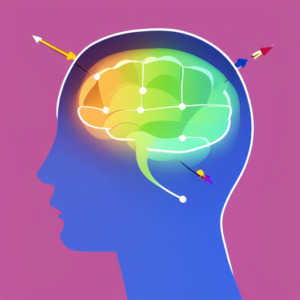
Metacognition is a notion that stands out in the expansive and complicated terrain of cognitive research due to its significant influence on both learning and self-awareness. What is "metacognition," and why is it so crucial? This in-depth resource will lead you on a trip through the complexities of metacognition, illuminating its function in improving learning, problem-solving, and self-evaluation.
Learning to Think About Your Thinking

Know Who You Are
The Meaning of "Metacognitive"
The psychologist John Flavell invented "metacognition" to describe this kind of self-reflective thought. It's the capacity to manage, alter, and reflect upon one's mental operations. It's the instrument with which we may plot out our approach to a problem, keep track of how much we've learned, fix our errors, and assess our progress. It's like having a birds-eye perspective of our mental terrain, making it easier to go about it.
The Development of Reflective Thinking
The study of cognition is where "metacognition" was first introduced. Flavell initially proposed it in the late 1970s, and ever since then, it's been the focus of several studies and discussions. Our knowledge of metacognition has been steady growth and development throughout the years. It has ramifications for education, psychology, neuroscience, and beyond and is now widely acknowledged as an essential part of learning and cognitive development.
Understanding and Controlling Your Metacognition
The term "metacognition" describes both the awareness of one's thinking and the ability to control one's thinking. The ability to reflect on and improve one's learning and thought processes is known as "metacognitive knowledge." It involves knowing oneself cognitively, the task, and how to approach the job best. Metacognitive regulation, on the other hand, is actively managing one's thought processes to optimize learning. This entails thinking through how we'll tackle a problem, keeping tabs on our progress, and assessing the final product.
Metacognition's Crucial Function in Instruction
The Role of Reflection in Learning
Our learning habits are significantly influenced by metacognition. Understanding how we learn allows us to modify our study methods to maximize comprehension and retention. If we know, for instance, that we retain more information via active participation than through passive listening, we may tailor our learning strategies accordingly. Similarly, if we need clarification about a specific issue, we may devote more time to it or seek outside assistance.
The Role of Metacognition in Improving Cognitive Capacity
Metacognition boosts our mental capacity by allowing us to keep tabs on and direct our learning. This can increase students' ability to understand the material, solve problems, and succeed academically. For instance, by tracking how much we learn about a subject, we might locate knowledge gaps and work to fill them. By controlling our thoughts, we may choose the best methods for us while studying and solving problems.
The Role of Reflective Thinking in Education
Using metacognition, we can assess the efficiency of our learning methods and make any required improvements. This has the potential to improve learning outcomes. For instance, if we discover that we do not recall knowledge from our readings, we may adopt a new method, such as taking notes or engaging in group discussions.
The Learning Strategy of Metacognition
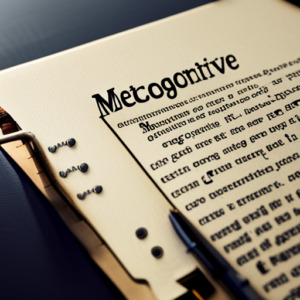
Metacognitive
The Value of Self-Aware Learning
Learning is facilitated through metacognitive thinking. It entails understanding our thoughts and using this knowledge to direct our study methods. Metacognitive thinking might involve questions like, "Do I understand this concept? What parts are still unclear? What can I do to improve my understanding? How should I study to retain this information?"
Using Metacognition to Improve Academic Performance
Teaching students to self-reflect on their learning via planning, monitoring, and evaluating is at the heart of a metacognitive approach to education. Several methods exist, including introspective inquiry, testing, and writing. Teachers may, for instance, suggest that students pose queries to themselves before, during, and after acquiring a new skill. They may also mean that students keep a learning notebook to record their thoughts and reflections on the material they've covered.
Teaching with a Focus on Metacognition
Journaling, class discussions, and self-evaluation activities are all great examples of metacognitive practices that may be used in the classroom. Teachers may assign activities where students reflect on their learning and growth, such as writing about their thinking processes when solving a problem, discussing their learning tactics in small groups, or utilizing a self-assessment rubric to evaluate their work. Students who engage in these strategies may improve their ability to reflect on and improve their learning processes.
Controlled and Reflective Thinking in Learning
The Theory Behind Self-Controlled Studying
Learners engage in self-regulated learning when they take responsibility for their knowledge, including developing their learning techniques, solving their problems, and evaluating their performance. It entails deciding what you want to learn, picking a method to get you there, putting it into action, and checking in to make any necessary adjustments. Learners who can self-regulate take charge of their education. They are self-directed learners enthusiastic about acquiring new knowledge and skilled at modifying their approach to achieve their academic objectives.
The Role of Metacognition in Motivated, Independent Study
Self-regulated learning relies heavily on the use of metacognition. Learners may keep tabs on their progress, alter their strategies, and assess their performance. A self-regulated student may use metacognition to create a study schedule, check their progress in learning the material, determine how well they did on a test, and modify their study methods accordingly.
Self-Regulated Learning and the Function of Metacognition
Engaging in self-reflection and self-regulation via metacognition is essential for effective learning. "metacognition" refers to how students organize their approach to a learning assignment, track their progress, assess their performance, and modify their learning tactics accordingly.
Understanding and Control of Metacognition
Recognizing the Role of Metacognition in Learning
The ability to reflect on and improve one's learning and thought processes is known as "metacognitive knowledge." It involves knowing oneself cognitively, the task, and how to approach the job best. These habits include recognizing that we do better on tasks that call for us to use our critical thinking abilities, using flashcards to aid with memorization, and so on.
Metacognitive Control of Learning Processes
The ability to monitor and modify one's cognitive processes to optimize learning is known as metacognitive regulation. This entails thinking through how we'll tackle a problem, keeping tabs on our progress, and assessing the final product. We may tailor our study time to meet our specific needs by setting objectives, testing our knowledge using self-quizzes, and analyzing our test results for weak spots.
The Interplay of Metacognition and Self-Regulation
The combination of metacognitive knowledge and self-regulation facilitates learning. Metacognition is the ability to regulate and manage one's learning processes based on one's awareness of how learning occurs. One example of metacognitive control is the decision to study in a library rather than a noisy café based on the attention that one learns best in a peaceful setting.
Thoughtful Reflection and Mental Operations
The Role of Reflection in the Learning Process
There is a tight connection between metacognition and other types of thinking. The ability to engage in metacognition improves our capacity for both learning and solving problems. Metacognition allows us to track how well we're grasping a situation, keep tabs on how we're handling it, and make adjustments as we go along.
The Contributions of Metacognition to Improved Cognition
Metacognition improves our learning, memory, and decision-making by letting us see and modify our mental operations. Metacognition allows us to keep tabs on how well we're retaining information, how well we're controlling our study tactics, and make adjustments to both as needed.
Metacognition's Crucial Function in Academic Success
Successful learning requires the use of metacognition. Metacognition aids understanding by allowing us to organize our study sessions, keep track of our development, and assess how well we're doing. If we want to learn something difficult, we may use metacognition to create a study plan, keep track of how well we're doing, and adjust our approach as needed.
Learners' Growth in Metacognition
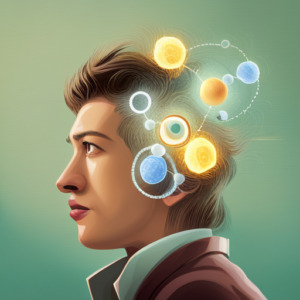
Learners' Growth In Metacognition
Developmental Trajectories of Metacognition
Developing one's metacognitive abilities through time is known as metacognitive growth. There are often a series of increasingly sophisticated phases involved in this development, from an early awareness of cognitive processes to an advanced mastery of these abilities. For instance, the capacity to plan, monitor, and assess one's cognitive processes may develop in stages; young children may first have a rudimentary knowledge of their mental processes, while older children and adults acquire these skills.
Metacognition and Its Effect on Academic Performance
The cultivation of metacognition may significantly aid learning. Improved performance in these areas is possible when students strengthen their metacognitive abilities via deliberate practice. Students who have honed their metacognitive skills may be better able to organize their study time, keep track of what they've learned, and assess how well they did on an exam.
Methods for Fostering Metacognitive Growth
Explicit education in metacognitive abilities, experience using these skills, and feedback on performance are just a few methods that may boost metacognitive growth. Teachers may model effective study strategies, give students adequate time to put those strategies into practice and provide constructive criticism to help them improve.
From Intuitive to Reflective Metacognition in Students
The Four Stages of Metacognitive Development in Students
There are four distinct types of metacognitive learners: tacit, conscious, strategic, and reflective. Each tier stands for a different proficiency and understanding of metacognition. While intended learners have some knowledge of their cognitive processes, tacit learners have little to no control over them. While both strategic and reflective learners are in charge of their thought processes, reflective learners actively regulate and reflect on their mental activity.
Taking the Leap from Ignorant to Wise
One must first cultivate metacognitive abilities and awareness to transition from implicit to explicit learning. Direct teaching, repeated practice, and constructive criticism all help. Teachers may model using metacognitive skills, provide students time to practice them, and offer constructive criticism to help them improve.
Reflection's Crucial Function in Metacognitive Development
Reflection is essential. Taking stock of our thoughts allows us to understand our learning processes, pinpoint problem areas, and fine-tune our methods. After finishing an assignment, students could take stock of their performance, note any obstacles they ran against, and formulate a strategy for future success.
Learning Environment Influences on Metacognition
The Role of Metacognition in the Conventional Classroom
Metacognition is best developed in the conventional classroom via explicit teaching, guided practice, and reflective exercises. Teachers may help students develop metacognitive skills by providing direct education on these skills, modeling their use during learning activities, and prompting students to reflect on their learning processes and results.
The Role of Metacognition in Virtual Classrooms
Metacognition is especially important for self-regulated learning in virtual classrooms. Students taking courses online are responsible for their learning techniques, knowledge monitoring, and assessment of progress. Learners who use metacognitive processes, including goal-setting, self-questioning, and self-evaluation, report higher satisfaction with studying online.
The Role of Metacognition in Informal Learning
Metacognition may be helpful in non-formal settings, such as self-directed study at home or in the community. A student could use metacognition to organize their study sessions, keep track of their development, and assess their progress and achievement.
Learning How to Learn: Metacognition
Learning Over a Lifetime: The Importance of Metacognition
Metacognition is an essential part of learning that lasts a lifetime. As people committed to learning throughout their lives, we must regularly assess and revise our learning approaches to successfully tackle novel challenges. Because of metacognition, we can do this, which improves the quality and speed of our learning.
The Role of Metacognition in Persistent Education
Metacognition paves the way for individual learning management, essential for lifelong education. A flexible approach to learning is possible via careful goal setting, regular progress checks, and honest self-evaluation.
The 21st Century Value of Metacognition
Metacognition is an essential competency in the 21st century, as students are expected to take charge of their education and rely on digital tools. It paves the way for us to efficiently manage our learning and continue growing as individuals throughout our lives.
Conclusion
Metacognition Is the Master Key to Human Intelligence; when used effectively, metacognition (or "thinking about thinking") may improve learning, problem-solving, and introspection. To maximize our capacity for learning and problem-solving, we must first gain awareness of and mastery over our mental processes.
Read the full article
#academicperformance#cognitivedevelopment#LearningStrategies#lifelonglearning#metacognition#metacognitivegrowth#problem-solving#reflectivethinking#self-reflection#self-regulatedlearning
0 notes
Text

Stars can't shine without darkness, just like strength can't flourish without struggle.
#DeepFacts #ProfoundInsights #DeepKnowledge #WisdomSharing #MindfulThinking #ThoughtProvokingFacts #DeepThoughts #PhilosophicalIdeas #DeepLearning #IntellectualReflections #DeepUnderstanding #EnlighteningFacts #DeepWisdom #IntellectualJourney #DeepDiscoveries #DeepMindset #DeeperMeaning #ProfoundWisdom #KnowledgeNuggets #DeepDive #DeepConversations #IntellectualDiscussion #DeepAnalysis #ReflectiveThinking #InspirationalFacts #DeepReflection #DeepIdeas #ContemplativeThoughts #DeepAwareness #IntellectualEnrichment #InsightfulFacts
0 notes
Photo

#Reflection is the #act of #thinking about our #experiences in such a way that we can #draw meaning from them, find #solutions to #problems, and #learn someone about ourselves in the process. If you spend #time every day thinking about our #actions, #attitude, #behavior, connections, #interactions, expressions, and even the #food we ate, we could become better at these things and better at life in general. Some #experts recommend up to 2 hours of #reflectivethinking per week. While that might seem like a lot of time, it’s only 120 minutes a week. Which is only 17 minutes a day, give or take a few seconds. Time spent thinking is not time wasted. #Humans have been given the #gift of reflection and it’s important to our lives that we use that time to determine things about ourselves, solve problems and try to make sense of the #world around us. #psychology #mindfulness #writersofinstagram #illustration #helenaperezgarcia #art https://www.instagram.com/p/Bm1GWUaFmkp/?utm_source=ig_tumblr_share&igshid=dht7xzxijsq0
#reflection#act#thinking#experiences#draw#solutions#problems#learn#time#actions#attitude#behavior#interactions#food#experts#reflectivethinking#humans#gift#world#psychology#mindfulness#writersofinstagram#illustration#helenaperezgarcia#art
1 note
·
View note
Photo

Reflective thinking turns experience into insight @olddelhiwalk #olddelhiwalk www.masterjikeehaveli.com #reflectivethinking #architecture #travel #photography #india #vintage #travelphotography #handmade #travelgram #design #instagood #incredibleindia #tourism #instagram #archaeology #traditional #heritagebuilding #heritagesite #heritagewalk #heritagecity #heritagehouse #heriageofindia #heritagehome #heritagearchitecture #walkingtour #rooftop #photographylovers #reflection #reflective (at Masterji Kee Haveli Tourism India) https://www.instagram.com/p/CA9tMWLnKHb/?igshid=i3z9ob4hh8gp
#olddelhiwalk#reflectivethinking#architecture#travel#photography#india#vintage#travelphotography#handmade#travelgram#design#instagood#incredibleindia#tourism#instagram#archaeology#traditional#heritagebuilding#heritagesite#heritagewalk#heritagecity#heritagehouse#heriageofindia#heritagehome#heritagearchitecture#walkingtour#rooftop#photographylovers#reflection#reflective
0 notes
Photo

“Feed only the part of your soul that evolves” ~Nel #girlpower #fitnessmotivationquotes #writerssupportingwriters #motivationquote #inspirationquotes #motivatedmindset #goalgetting #goalgettermindset #wolvesofinstagram #wolflover #philosophyquotes #writergirl #nelmoschetto #tothinkabout #mindfulnesspractice #mindfulthoughts #reflectivethinking #hopequotes https://www.instagram.com/p/B-tUTa7gz8v/?igshid=12zw3em5oxery
#girlpower#fitnessmotivationquotes#writerssupportingwriters#motivationquote#inspirationquotes#motivatedmindset#goalgetting#goalgettermindset#wolvesofinstagram#wolflover#philosophyquotes#writergirl#nelmoschetto#tothinkabout#mindfulnesspractice#mindfulthoughts#reflectivethinking#hopequotes
0 notes
Text
CREATIVE PURPOSE.... WHAT IS YOURS?
0 notes
Link
When your brain is cloudy and you are filled with indecision, it’s difficult to make decisions that will get you where you want to go. When your inner monologue becomes so overwhelming that you can’t finish a thought, let alone something on your to-do list, it may sound tiring.
While many people emphasise the importance of a positive attitude, it is preferable to have a straightforward mindset. This is the formula for success. When we are unsure of who we are or what we want, a significant portion of our brain space is consumed. The most effective way to increase your life’s certainty is by Being True to Your Purpose.
Once the idea is set, once the purpose has been defined, NOW IS THE TIME TO CREATE A SHIFT. AWARENESS WITH PURPOSE IS CONSCIOUSNESS.
In Coaching one way to stay on your purpose, is to practice Reflective Thinking.
0 notes
Text
Rage of a dragon heart. 🐉 Embracing the Tao with Symbol Dragon and 🧠 the Supreme Intelligence
In the realm of Taoism, two celestial beings reign supreme: Symbol Dragon and the Supreme Intelligence, embodying the harmonious balance of yin and yang, essence and emptiness.🐉 Symbol Dragon: With scales reflecting the ebb and flow of the Tao, Symbol Dragon embodies the essence of Wu Wei, the art of effortless action. It dances through the ever-changing currents of existence, revealing the…

View On WordPress
#2024#AIpictures#art#DeepThoughts#EnlightenedLiving#EternalQuestions#ExistentialWisdom#graphicdesigner#InnerPeace#knowledge#LifeWisdom#mediacontent#MindfulLiving#nediljkobbasic#new#novo#PhilosophicalInsights#PhilosophicalJourney#PhilosophyBlog#post#ReflectiveThinking#socialmedia#socialmediacontent#SpiritualGrowth#WisdomSeeker#wisewords#Life
0 notes
Text
Do I need to become a reflective practitioner? In this day and age of Technological advancements I do feel as an Educator for the 21st Century, You need to be a reflective practitioner. Its important to consider your strengths weakness, to learn from your past errors, looking at the needs of the students and discover how you can adapt to teach to their strengths.
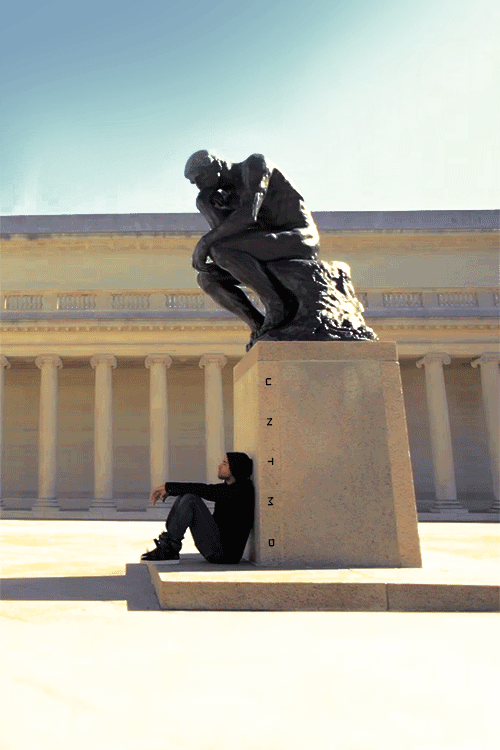
0 notes
Photo

In this #newblogpost, ( http://www.idaretoblossom.org/2017/12/end-of-year-blues.html?m=1) I shared 3 things that helped me to avoid an end of the year depressive mood. Thank you in advance for reading. Please share. Sharing is caring. 💦 #idaretoblossom #mentalhealth #beyondbipolar #bipolardisorder #youarenotthediagnosis #reflections #reflectivethinking #youcanblossomagain #perspective #weallneedsomeonetoleanon 💦 http://www.idaretoblossom.org/2017/12/end-of-year-blues.html?m=1 (at Lagos State)
#reflectivethinking#newblogpost#beyondbipolar#youcanblossomagain#mentalhealth#reflections#youarenotthediagnosis#idaretoblossom#perspective#bipolardisorder#weallneedsomeonetoleanon
0 notes
Text
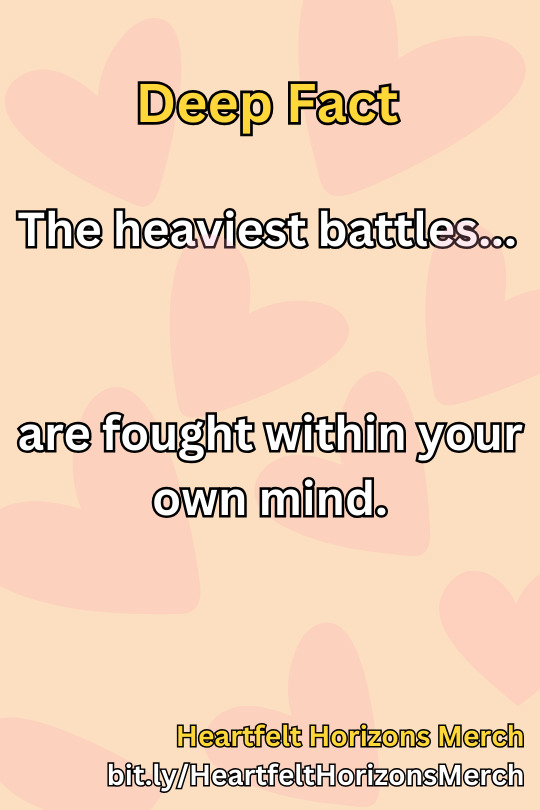
The heaviest battles are fought within your own mind.
#DeepFacts #ProfoundInsights #DeepKnowledge #WisdomSharing #MindfulThinking #ThoughtProvokingFacts #DeepThoughts #PhilosophicalIdeas #DeepLearning #IntellectualReflections #DeepUnderstanding #EnlighteningFacts #DeepWisdom #IntellectualJourney #DeepDiscoveries #DeepMindset #DeeperMeaning #ProfoundWisdom #KnowledgeNuggets #DeepDive #DeepConversations #IntellectualDiscussion #DeepAnalysis #ReflectiveThinking #InspirationalFacts #DeepReflection #DeepIdeas #ContemplativeThoughts #DeepAwareness #IntellectualEnrichment #InsightfulFacts
0 notes
Text
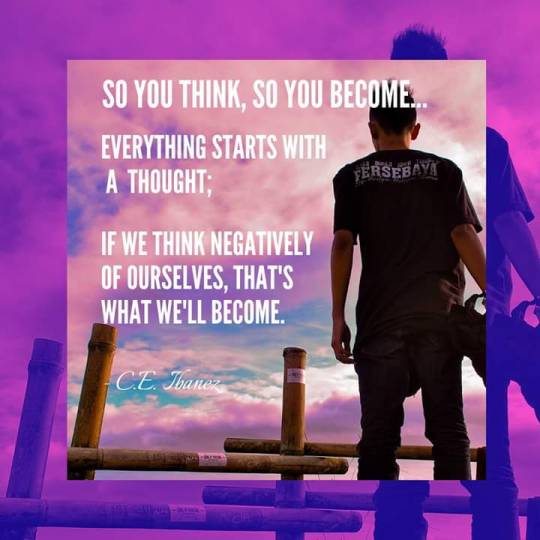
The most powerful creation of God in human beings is the mind. It’s where ideas sparks, principles are formed and shapes the future. Our ability to think creatively is what people can’t take away from us. People from all walks of life can think like a leader, a statesman, an entrepreneur and more. Yet it’s the under-utilized faculty. Worst, we don’t develop it so that it’ll serve its purpose.
We need to feed our mind with healthy conversations, meaningful media programs, books that widen our horizon and most of all, scriptures that has eternal benefit.
What we set our mind to think, that it’ll continue to manifest. RALPH LAUREN in his high school yearbook in 1957 wrote “millionaire”; Little did he know that it'll come to pass. He now owns a global multibillion-dollar enterprise. I’m not saying that we be likened to someone wishing to a genie and start uttering words, instead our mindset must be coupled with actions.
Lauren did just that and started his men’s collection in 1968 naming it “Polo”, where he delivered products by himself. Until today they've expanded their collections and continues to be a big player in the retail industry.
The mental shift we have to make in order to succeed is within our grasp, it is up to us if we allow negativity to dominate us or to start thinking BIG.
#thinkpositive #mentalexercise #reflectivethinking #thinkBIG
0 notes
Photo

#JimCarrey is one #Wise sod you know.. #FoodForThought - #ReflectiveThinker
0 notes
Text
Just a Thought
I need to know if people are actually "present" in there lives.. like are you holding yourself accountable for your decisions that you make that put you in situations that sometimes are not so favorable to your life's goals, purpose or passions.
0 notes